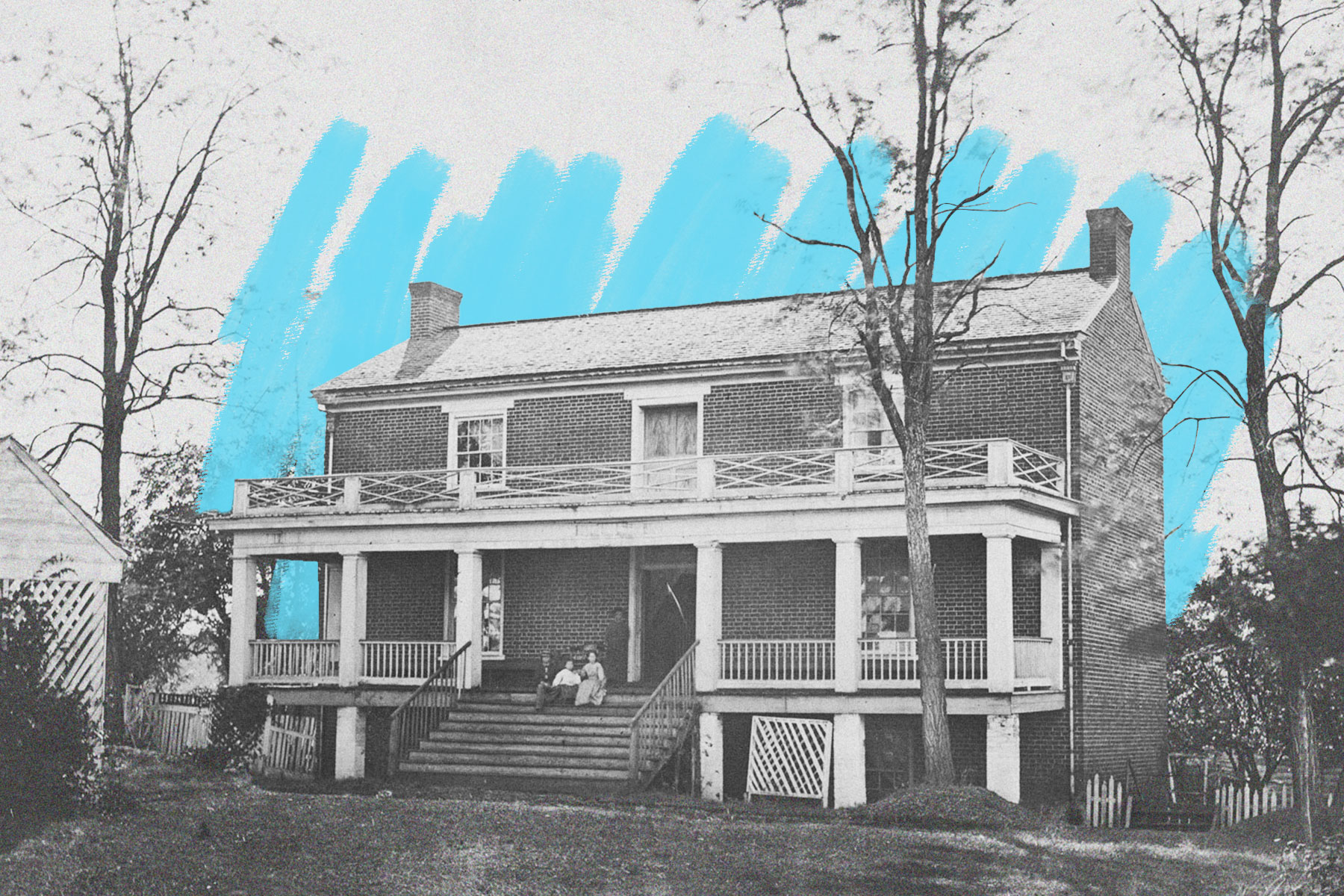The Civil War started and ended on the same person’s property.
The 1860s brought war to the doorsteps of many Americans, but none as literally as Wilmer McLean, who witnessed the beginning and end of the Civil War from his own home. McLean and his wife, Virginia Mason, moved to Manassas, Virginia, in 1853, shortly after their wedding. A few years later, the couple was surprised when Confederate General P.G.T. Beauregard commandeered their property to serve as his headquarters ahead of the first major land battle of the Civil War, the First Battle of Bull Run (although several smaller skirmishes had been fought during the months prior). The home was so close to the action that a cannonball soared through the kitchen and landed in the fireplace. The battle ended on July 21, 1861, in a Confederate victory, and as the fighting continued, the McLeans decided to head south.
As fate would have it, by 1863, the McLeans were reestablished in a small village called Appomattox Court House in southern Virginia. On April 9, 1865, the couple received a knock on their door. It was Charles Marshall, the aide to Confederate General Robert E. Lee, asking for a secure meeting location for the general. McLean showed Marshall surrounding properties, but none was as suitable as his own home, which he eventually volunteered. Later that day, Lee arrived at the McLean house, followed by Union General Ulysses S. Grant. It was at this meeting in the parlor that Lee formally surrendered to Grant, signaling the end of the American Civil War.









